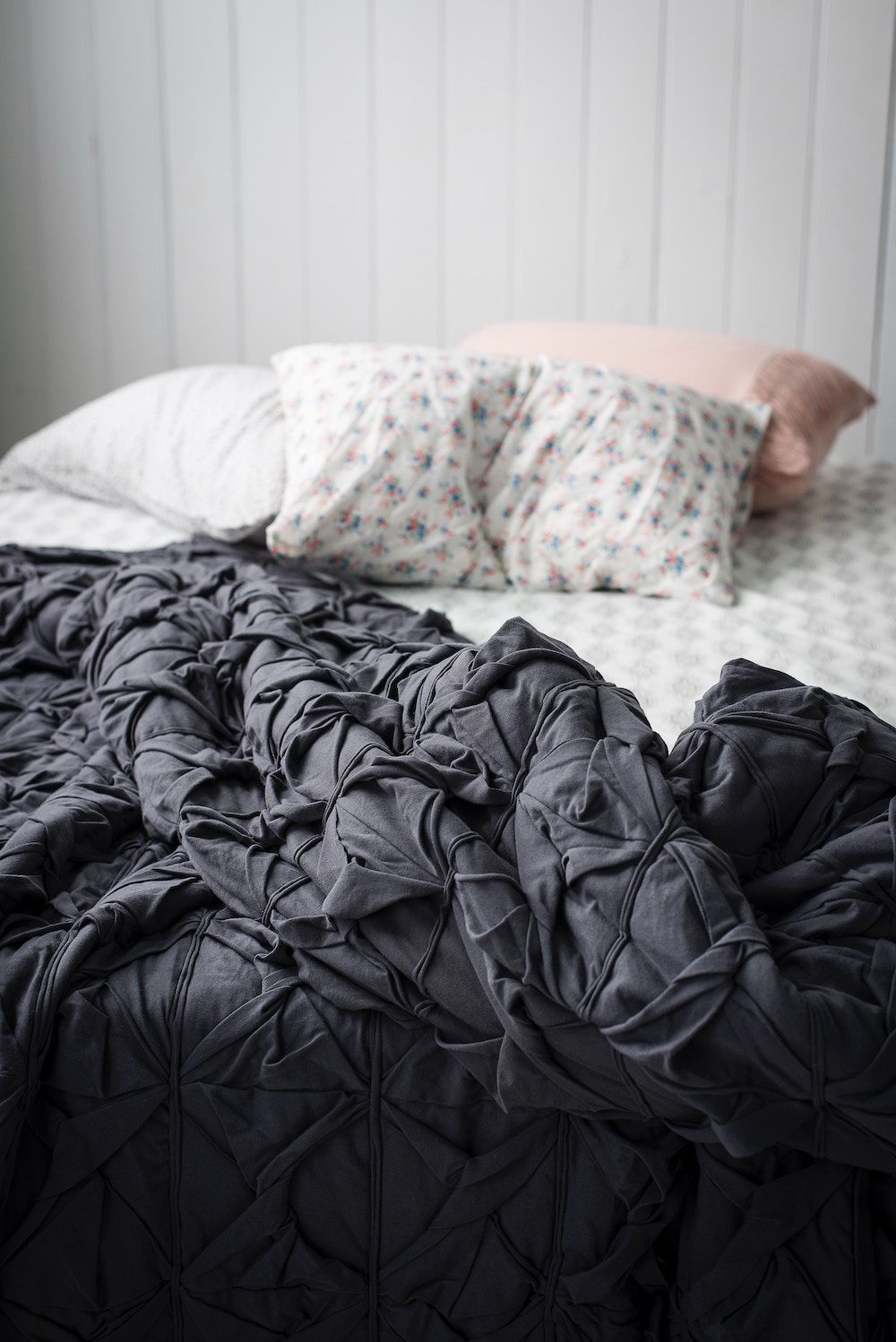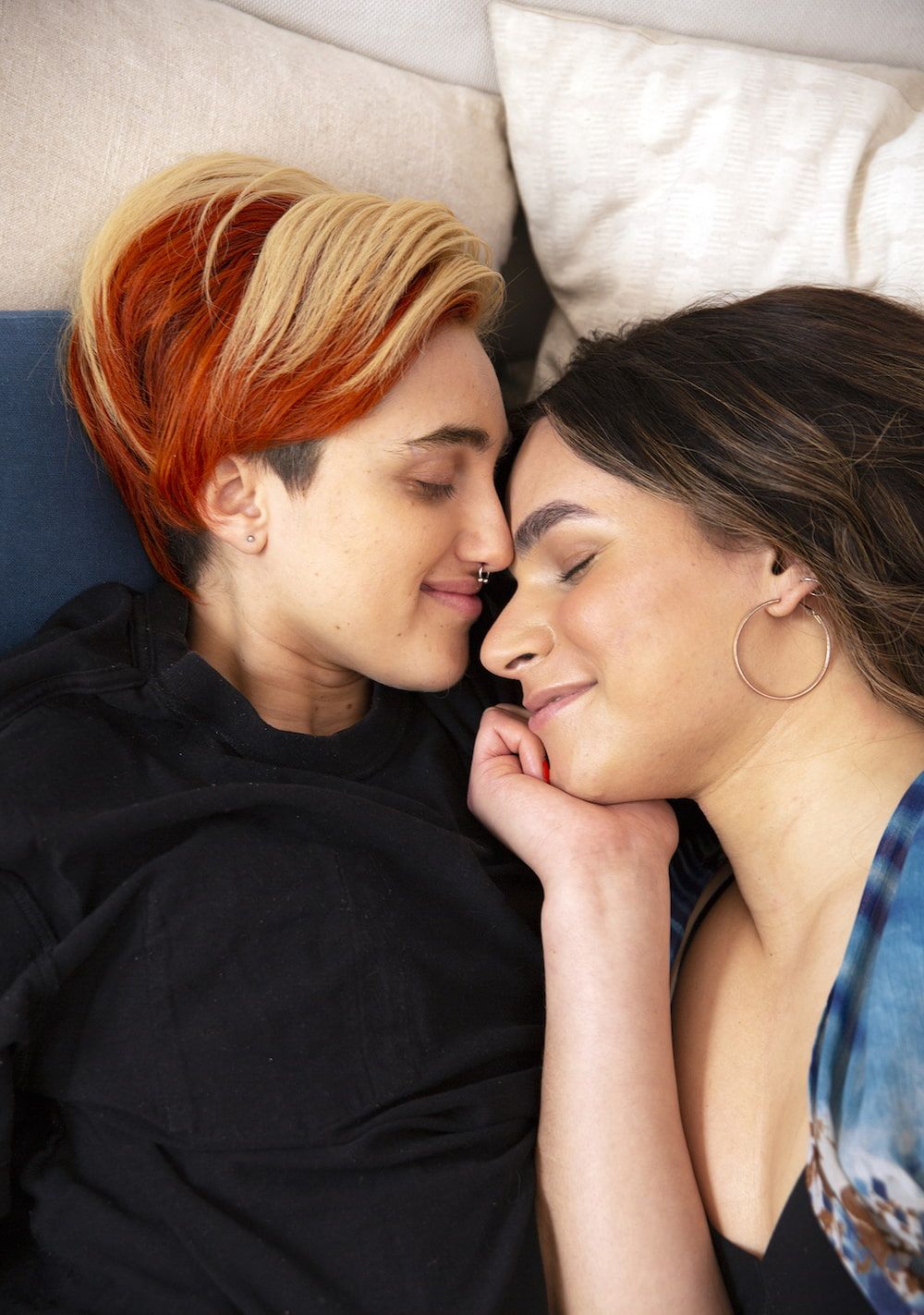Anorexia, low self-esteem, and a need for approval and acceptance, led Laura into a series of dismal, meaningless encounters. Now, on the road back to health and with a loving partner by her side, she is discovering that taking your time can be truly liberating
Sex, nudity, orgasms... these were all off limits for me for years. I’m not entirely sure why, because I didn’t grow up with messages that sex was a bad thing. I remember my sister and mum feeling comfortable walking around naked, whereas I would do everything possible to keep myself covered – even when I got out of the shower. From a very young age, I was embarrassed about being stripped of my clothes.
My eating disorder began in my late teens; a crucial time when you are meant to be exploring your sexual self. Not for me. My anorexia crushed any desire to find out what made me ‘tick.’ I lost my virginity at 16 in the most embarrassing of ways; in a friend’s garden with a guy I had barely spoken to. I’m not proud of this, but it set a precedent for what was to follow.
I’m not entirely sure of the number of people I have slept with, partly because I just haven’t given it much thought before now. I’m 36 and have only ever had two meaningful relationships; the first with a guy at university, and the other with my current boyfriend. The rest were brief encounters. I’m not necessarily talking about one-night stands, but guys I met in transient stages of life.

Each experience shared a common theme: inequality. I was mostly the subservient player, often both sexually and emotionally. I put their worth and value above my own. Their needs and satisfaction was more important than my own. This had consistently been my experience of men, until I met my current partner.
Recovery from my eating disorder was, by no means, a straightforward path. I spent many years in and out of relapse – and in and out of treatment centres – all to no avail. But I was incredibly fortunate to be able to spend seven months at an inpatient centre in California, USA, where I truly learned to heal from the inside out.
It was by far the hardest thing I have ever done, but also by far the best thing. The staff’s loving commitment to my recovery, enabled me to nurse my mind, body and spirit, and gave me the tools to cope in life without using my eating disorder.
Now that I am in this more positive place, I can reflect and I’m not entirely surprised that my behaviour with the opposite sex took this path. Alongside the meaningless liaisons, I also experienced a pretty hideous sexual attack in a foreign country to add to my fear and mistrust of men and their intentions.
I had an innate feeling of being ‘less than’. I craved approval and acceptance from others, and without knowing (as I do now) how to get my needs met, I demonstrated this by being a people-pleaser. I was the giver and never the receiver when it came to pleasure between the sheets, and I thought this was normal. It’s the guy that needs to be satisfied, right? As long they have had a good time, then I’ve done my job properly.
Perhaps this was why I never really enjoyed sex; it wasn’t something I cared much for and was always a physical act, with little sense of closeness. I am in no doubt that my low weight switched off my hormones, resulting in zero sexual desire. Eating fat is necessary for the production of oestrogen – a vital sex hormone in women – and without it, sex was easy to forgo.
My sexual relationship with myself – and others – has changed massively in the past few years, for which I owe a great deal to my recovery and my current boyfriend.
If you learn to be at peace with yourself first, then everything else will feel less of a struggle
I learnt that my readiness to be so dismissive of relationships was down to a fear of being rejected at an emotional level. I attracted men who only were only after one thing, and that suited my eating disorder. If I didn’t let them into my emotional self, then they couldn’t hurt, dismiss, or leave me. I wasn’t hugely keen on being seen naked, but my avoidance went much deeper than my physical self; I didn’t want to be ‘seen’ at all. I have never ‘needed’ a partner and have always enjoyed my own space. But since meeting with my current boyfriend I have realised the absolute joy of being part of a team.
It may have taken me until my 30s, but I’m grateful to have found someone who doesn’t judge me, who excites and motivates me, shows me love and support, and never leaves me wondering or questioning my belonging. He has shown me what it feels like to enjoy sex on equal ground, to feel close to someone, and to appreciate sex with myself without shame. The latter has been a work in progress. I felt embarrassed and disgusted at the thought of masturbating. I now realise that it is a really big part of my recovery and self-discovery as a woman; something my eating disorder prevented me from embracing.
When we first began dating I didn’t even know how to answer the question: “What do you like?” I didn’t know, because no one had ever asked me before. I had to Google what it felt like to have an orgasm because, again, I didn’t know. I wondered if there was something wrong with me, because in the very beginning I couldn’t.
My boyfriend didn’t rush me or place any pressure on me, he was just patient – and then it happened. I have discovered that sex can be simultaneously exhilarating and tender. Finding someone who took the time to meet my needs, and helped me to finally let go, liberated me.

Photography | The Gender Spectrum Collection
Since then I have gradually relinquished the shame around my body and being intimate. The ramifications of my eating disorder no longer haunt me. I still have the occasional hang-up about my body, but for me it was always more than that. I never felt truly present or connected when I had sex. Being intimate with yourself and another, is something that I now recognise as a basic human need, but for the best part of my early years I did it because I was searching for a connection with someone in all the wrong ways. I wanted to be close to someone, but not that close. I wanted to be desired, but I didn’t feel worthy of being cherished.
Sex and love are two very different things, and can exist in isolation. But when they exist in unity, it is the most magical experience imaginable. I can honestly say I never believed anyone would say ‘I love you’ and mean it, and I never thought I would say ‘I love you’ and mean it the way I do now.
Writing this made me cringe at times, but I decided to be brutally honest because it’s a topic that wasn’t really relevant until I entered recovery. Until you find peace within yourself, it is really difficult to be part of a relationship, because you are in constant conflict. Being in a partnership requires you to take risks and be vulnerable; both of which are not easy when you have an eating disorder.
When I began to let go of my eating disorder, I also let go of my shame. I was able to be present with myself and another – it was as if the two journeys were working in parallel.
If you can relate to any of this, then I would encourage you to start exploring your own needs, and don’t rush into finding someone until you have begun your own healing. If you learn to be at peace with yourself first, then everything else will feel less of a struggle. And trust me when I say the wait has been worth it.


Comments